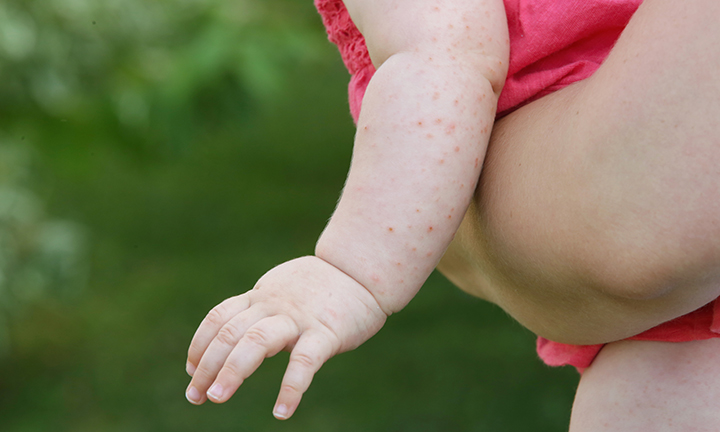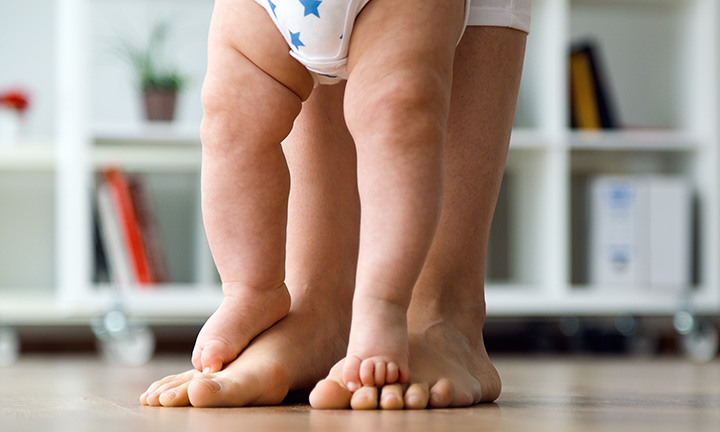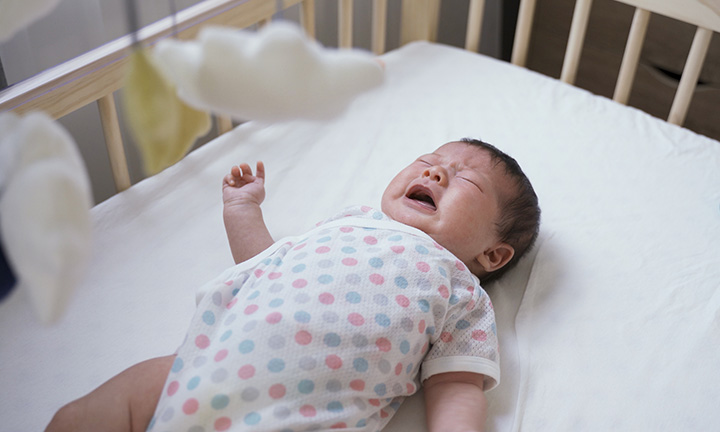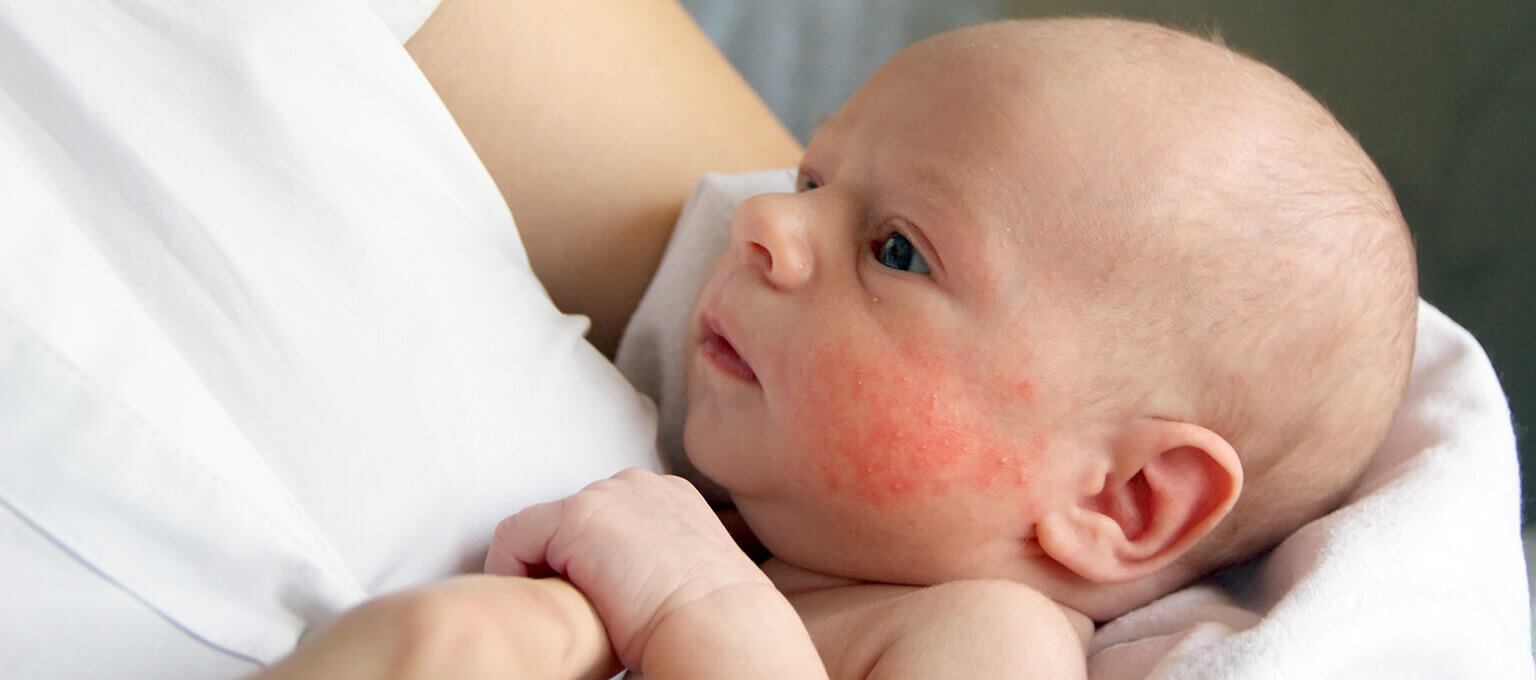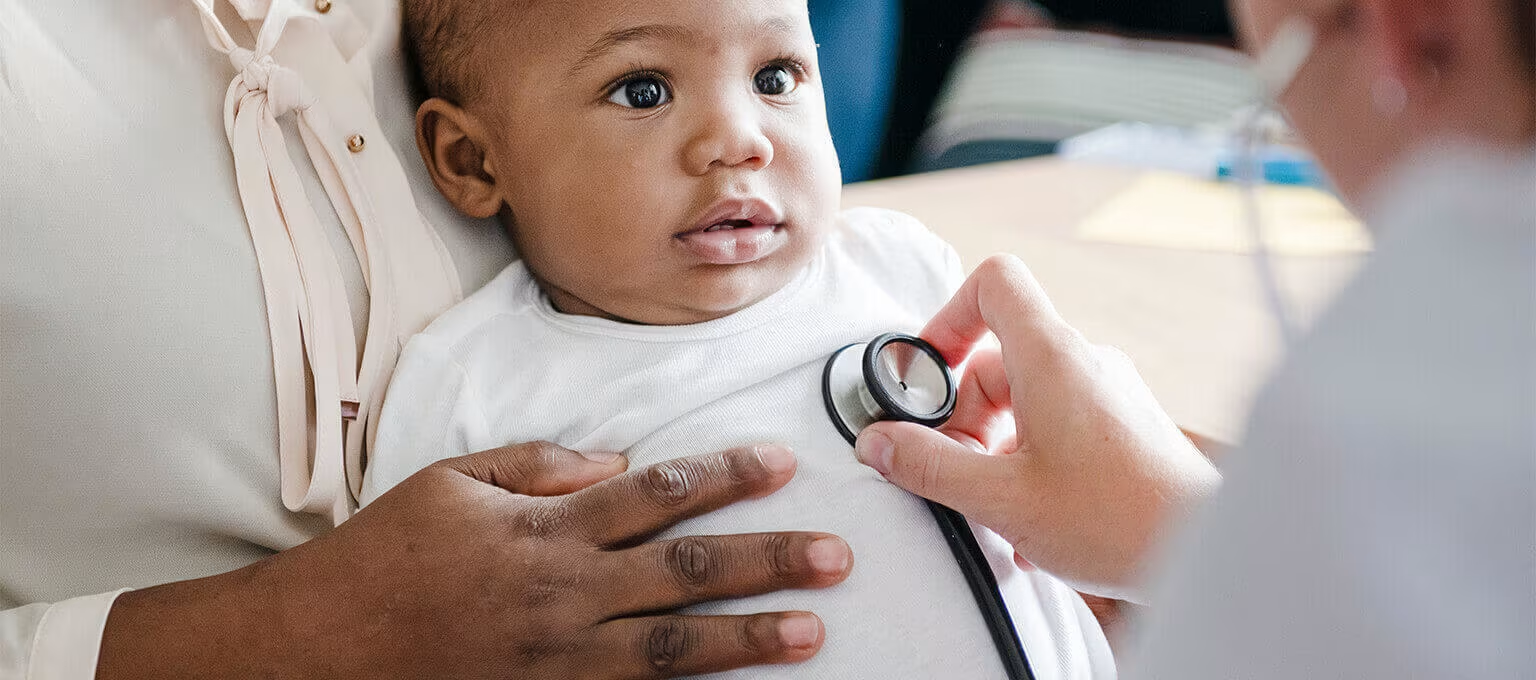
Pneumonia in Babies and Children
It's natural to feel worried if your little one has pneumonia, and of course this is a condition that needs to be taken seriously. Fortunately, though, with the proper treatment your baby will usually make a full recovery.
So what is pneumonia exactly? And what signs should you look out for in your baby? Read on to learn all about the different types of pneumonia, the symptoms, what treatment options there are for newborns and older babies and how you can help prevent your baby from getting pneumonia in the first place.
What Is Pneumonia?
Pneumonia is a chest infection that can make it hard or uncomfortable for your baby to breathe. It inflames the tissue in one or both of the lungs, which can make it more difficult for them to do their job of transferring oxygen to the blood.
Symptoms of Pneumonia in Babies
It’s important to recognise the symptoms of pneumonia as soon as possible, so your baby can get diagnosed and treated without delay.
Call your doctor immediately if you suspect your baby has pneumonia or if you notice any of these symptoms:
Causes of Pneumonia in Babies
Pneumonia in babies is usually caused by a virus or bacteria, or in much rarer cases by a fungal infection.
Sometimes a combination of different germs can be at play. For example, your baby’s immune system might be weakened by a virus, which makes it easier for a bacterial infection to take hold.
The two most common types of pneumonia in babies are:
Only your doctor can determine what’s causing your little one’s pneumonia, so it’s essential to have any possible symptoms checked out as soon as possible.
Pneumonia is often diagnosed based on a physical examination, but further tests may also be necessary, such an X-ray or a sample of mucus or blood.
Treating Pneumonia in your Baby
It’s important to have pneumonia diagnosed by your doctor as soon as possible, because the different types of pneumonia need different forms of treatment.
In mild cases pneumonia can often be treated in your home, following your doctor’s advice. However, some babies may need to be treated at the hospital.
Bacterial pneumonia often needs to be treated with antibiotics, while viral pneumonia will often clear up by itself without any treatment (apart from plenty of rest and fluids, and an anti-fever medicine if it’s recommended by your baby’s doctor).
Because it’s not always easy for your doctor to tell what’s causing your baby’s pneumonia, in some cases an antibiotic may be recommended just to be on the safe side. Whether this is needed depends on many factors, including the age of your baby or toddler and how the infection may have developed.
Always follow your doctor’s advice when giving your baby antibiotics or any other medicine. It’s important to always finish the course of antibiotics – even if your child seems to get better before they’re all used up – unless your doctor tells you to stop.
Go back to your doctor if the symptoms don’t start to get better within three days of starting treatment with antibiotics.
Experts advise against giving a cough suppressant to your baby if he or she has pneumonia. Coughing may not be much fun for your baby, but it’s important for clearing your baby’s lungs. There is also little evidence that medicines of this kind are effective.
If your baby is more than 1 year old, you could try giving him or her a warm, soothing honey and lemon drink to help relieve a sore throat.
Make sure your baby gets plenty of rest and stays hydrated. If you’re still exclusively breastfeeding or bottle feeding, keep on feeding your baby. It may help to give smaller quantities at more frequent intervals. If he or she is eating solids, give regular extra sips of water.
Keep a close eye on your baby’s condition and go back for another check-up if you notice any signs that the infection could be getting worse or spreading.
When to Go Back to Your Doctor
Warning signs that the pneumonia is getting worse could include:
How Long Does Pneumonia Last?
The time it takes for your little one to start feeling better can depend on lots of things, including the type of pneumonia and how severe the infection is.
Bacterial pneumonia can clear up in one or two weeks with treatment, although a cough may linger for a few more weeks. Pneumonia caused by a virus may last longer.
Keep in mind, though, that fully recovering from pneumonia can take longer in more severe cases.
Is Pneumonia Infectious?
Although pneumonia itself is not generally infectious, the viruses and bacteria that can cause it may spread from person to person.
Some infections that can cause pneumonia – such as influenza – may be transmitted through coughing and sneezing.
Sharing drinking glasses or utensils is another way of spreading germs, so don’t let anyone — especially other babies or children — drink from your baby’s cup or bottle or use your child’s cutlery, plates or bowls. Likewise, don’t allow your baby to use other people’s utensils.
How to Prevent Pneumonia in Your Baby
Here are some ideas for how you can help prevent your baby from getting pneumonia:
FREQUENTLY ASKED QUESTIONS
Pneumonia in babies is usually caused by a virus or bacteria, although in much rarer cases it can result from a fungal infection.
Illness is one of those challenges that you’re bound to face from time to time as a parent, but of course it’s still normal to feel worried about what to do if your newborn baby or toddler gets a condition like pneumonia.
With any luck, knowing a bit more about this condition and how effectively it can be treated will put your mind at ease and help you to recognise the warning signs and symptoms so that your little one receives the best possible treatment as soon as possible.
In most cases, it won’t be long before your baby’s back to his or her usual self and you’ll be able to get on with enjoying the adventure that is parenthood.
- NHS: Pneumonia
- NHS: Pneumonia conditions
- NHS: Antibiotics
- NHS: Treatment
- NHS: Pneumonia
- NHS: Sepsis symptoms
- NHS: Symptoms of pleurisy
- NHS: Flu seasonal
- NHS: Pneumococcal vaccine overview
- NHS: Flu vaccine overview
- NHS: Measles complications
- NHS: Whooping Cough
- NHS: Why vaccination is safe and important
- NHS: Bronchiolitis
Read more about Baby
Join Pampers Club and get:


